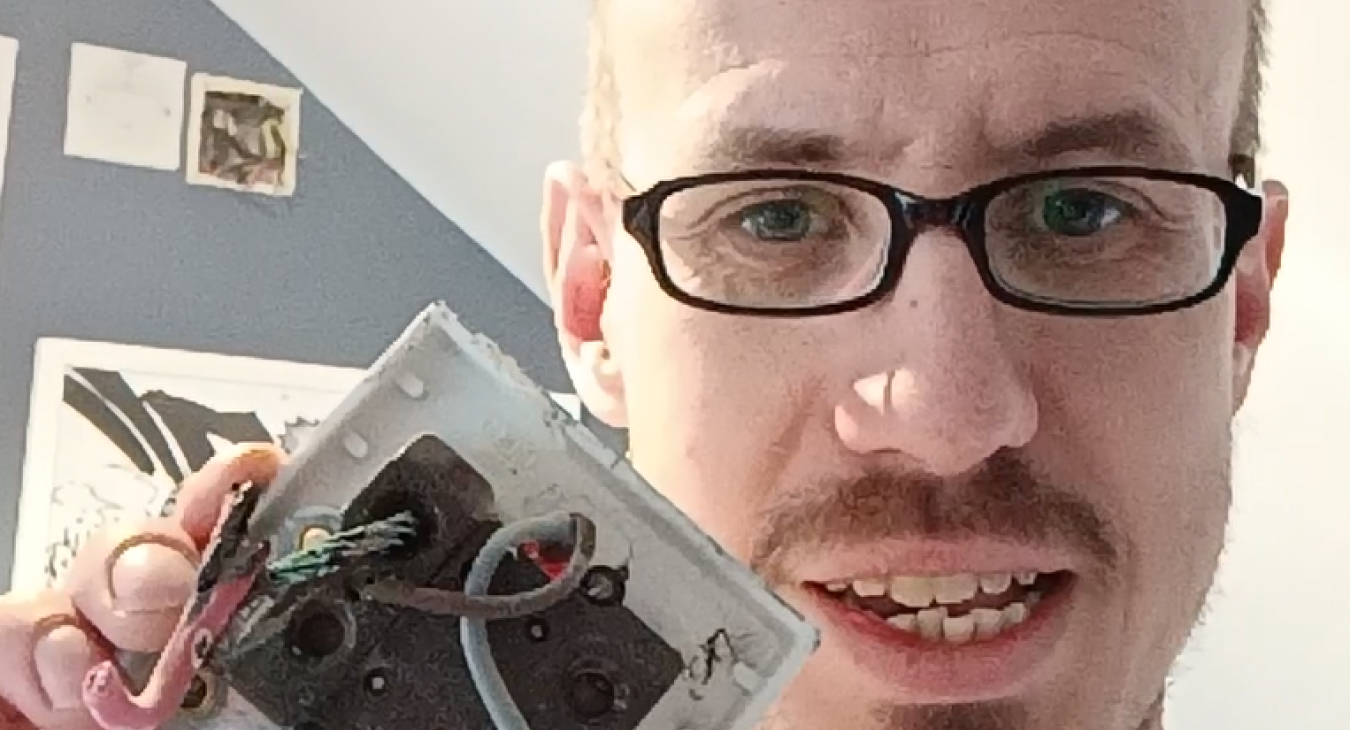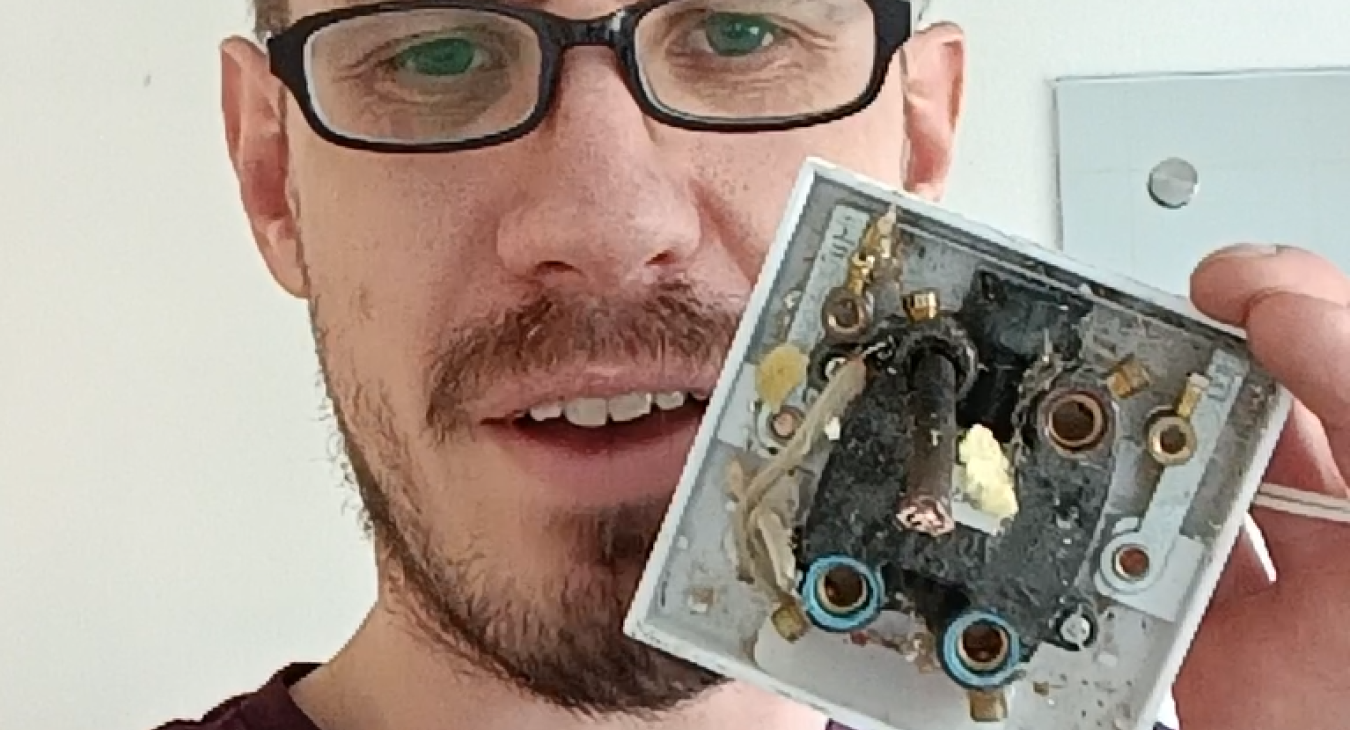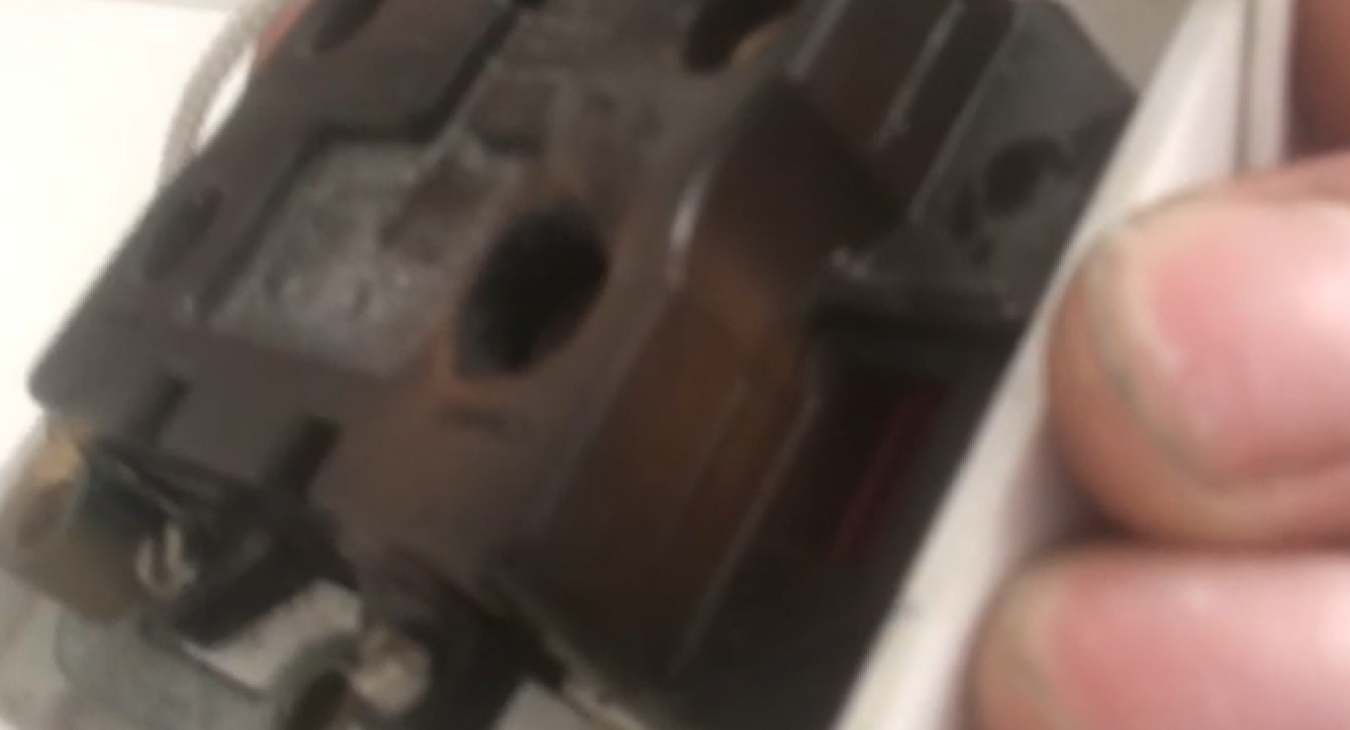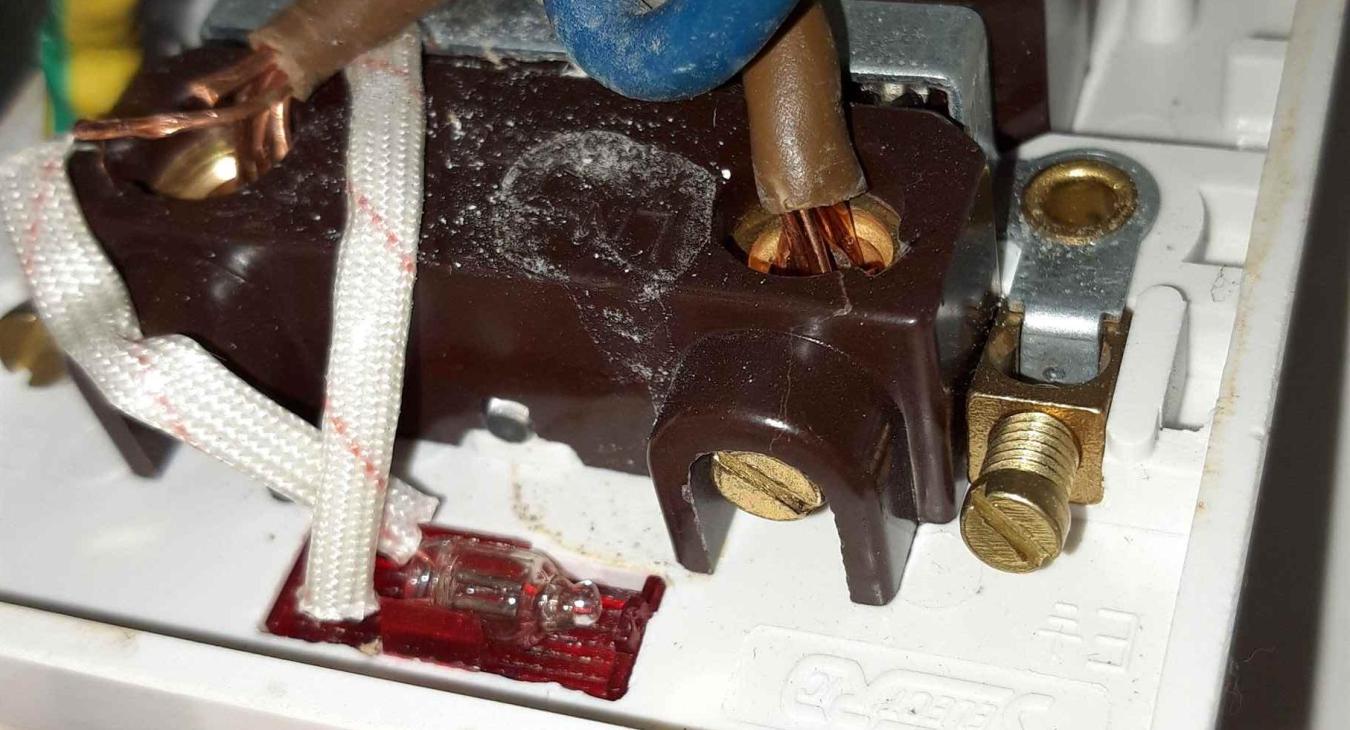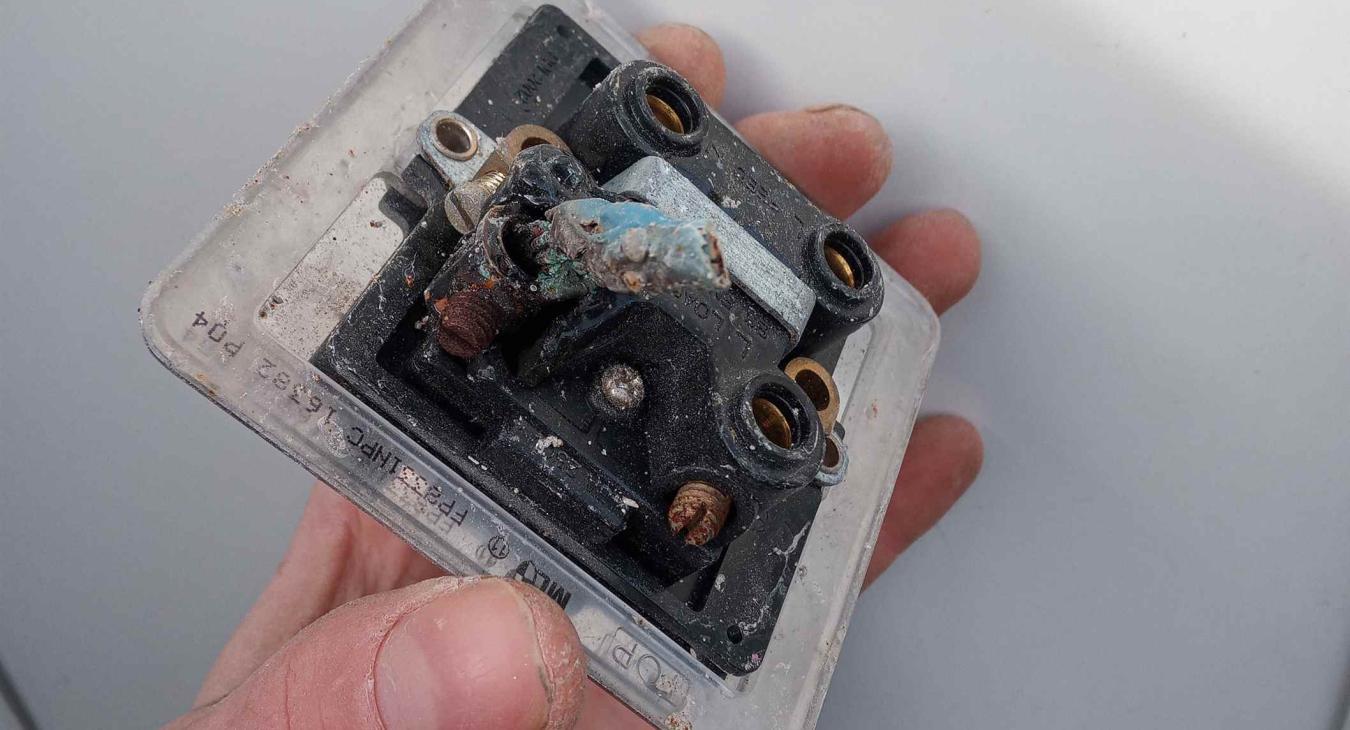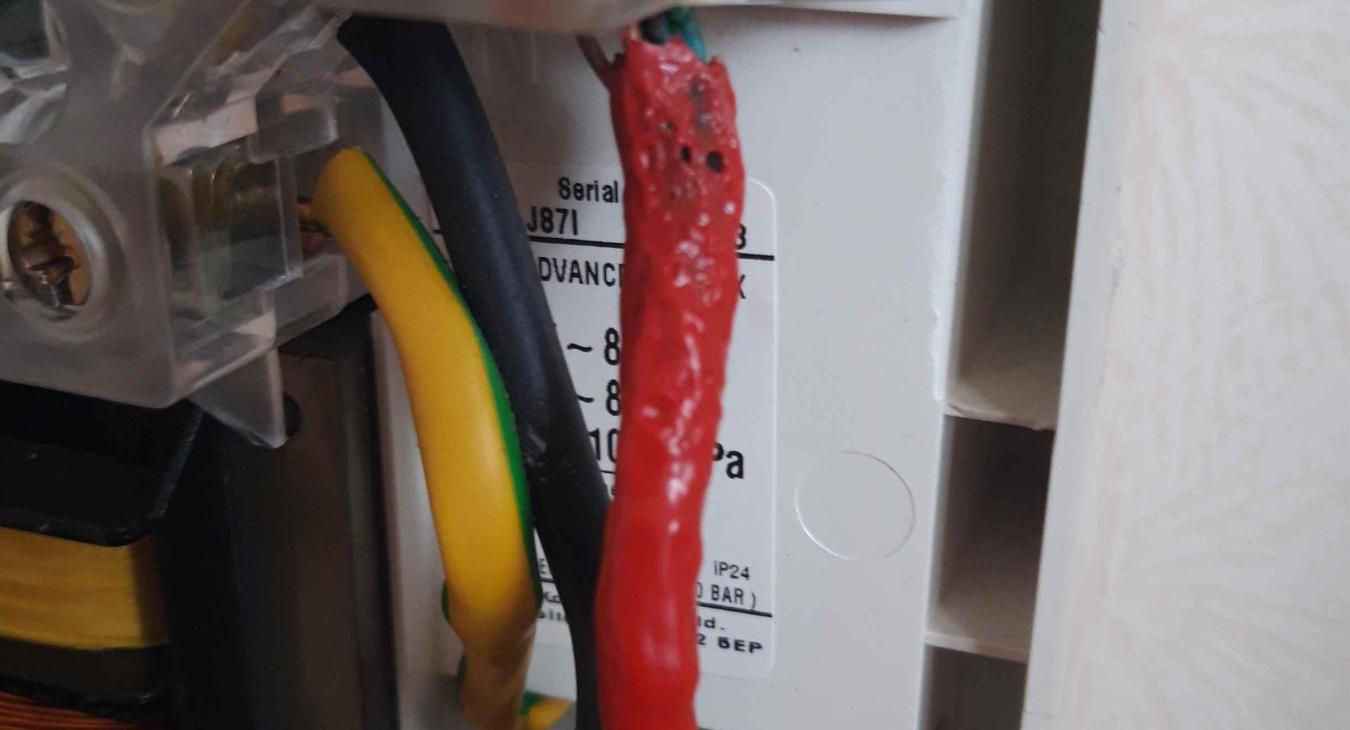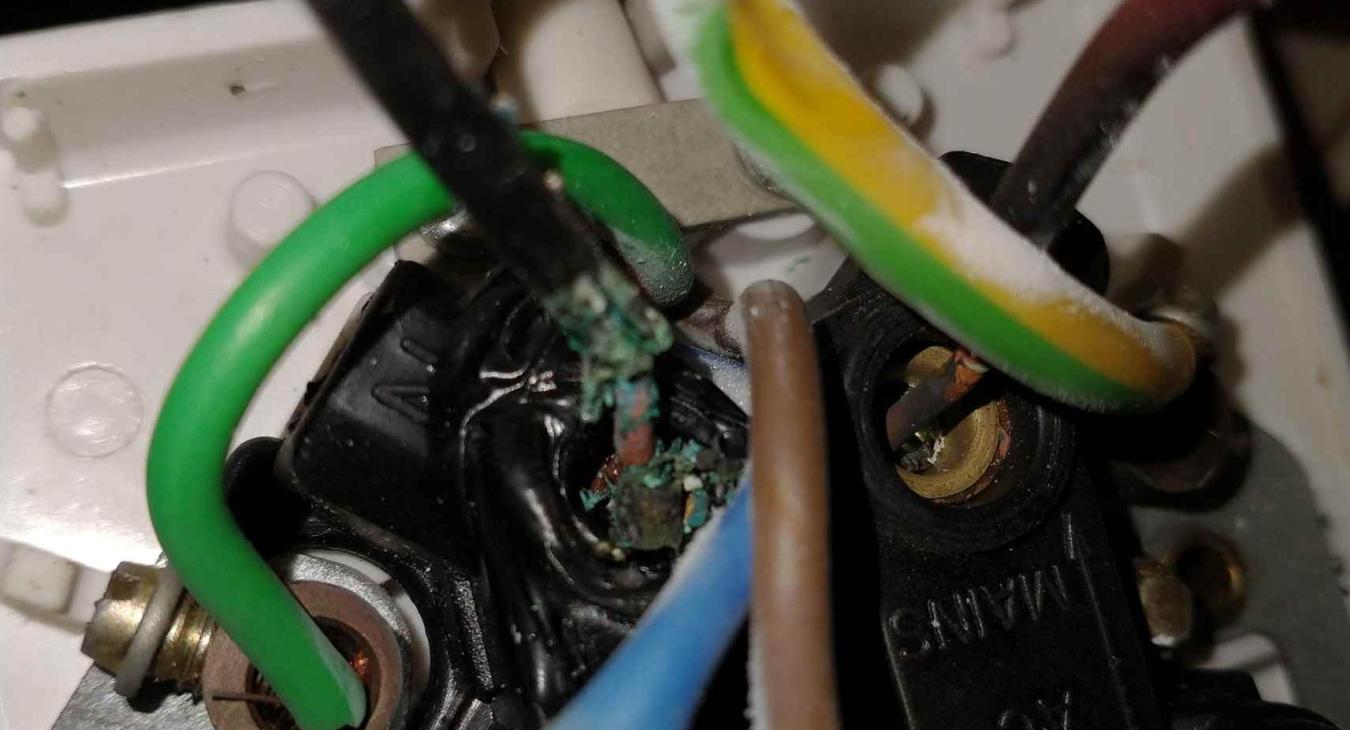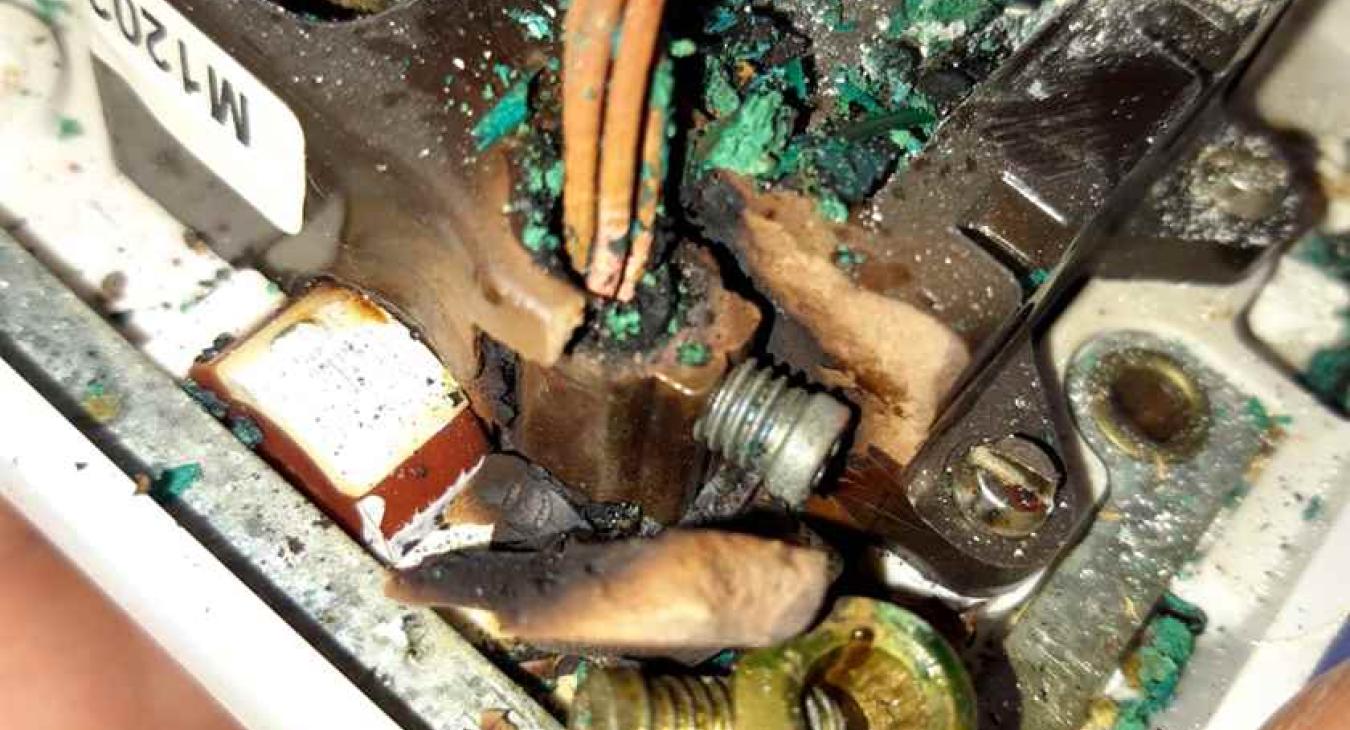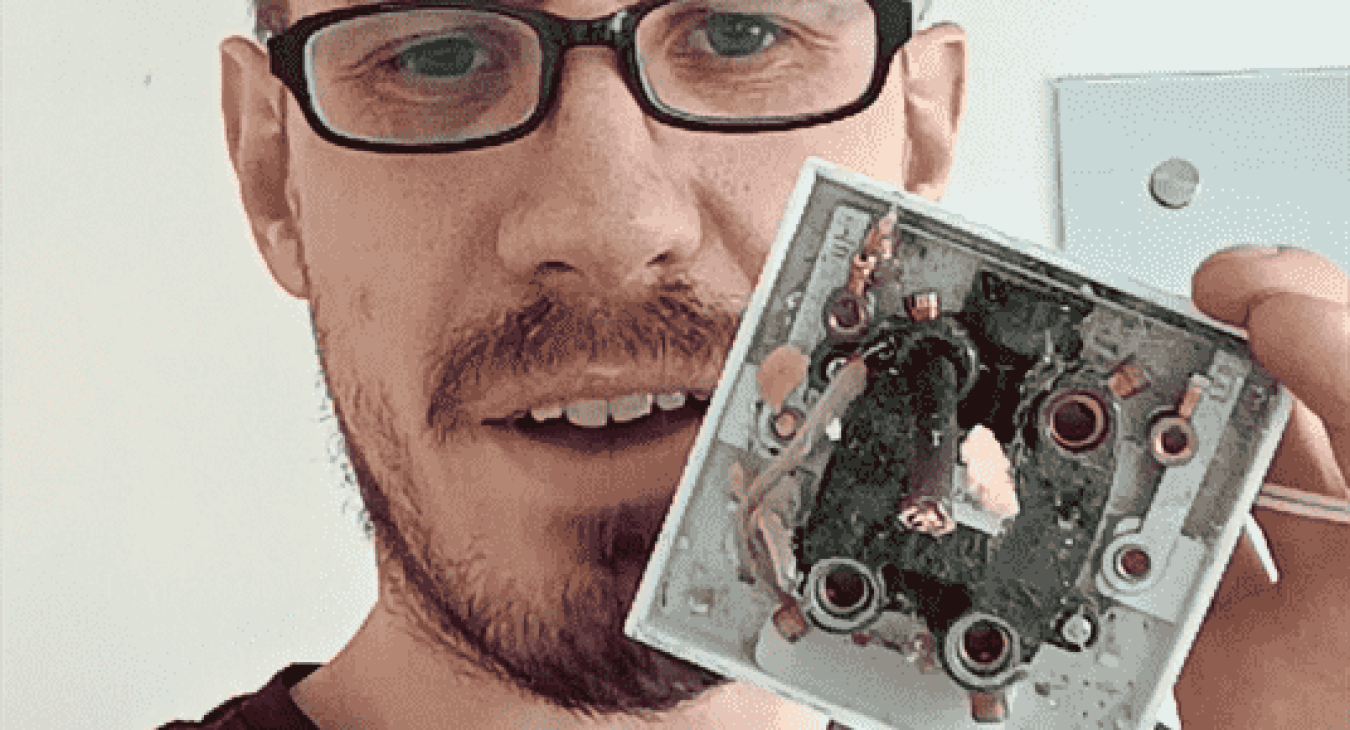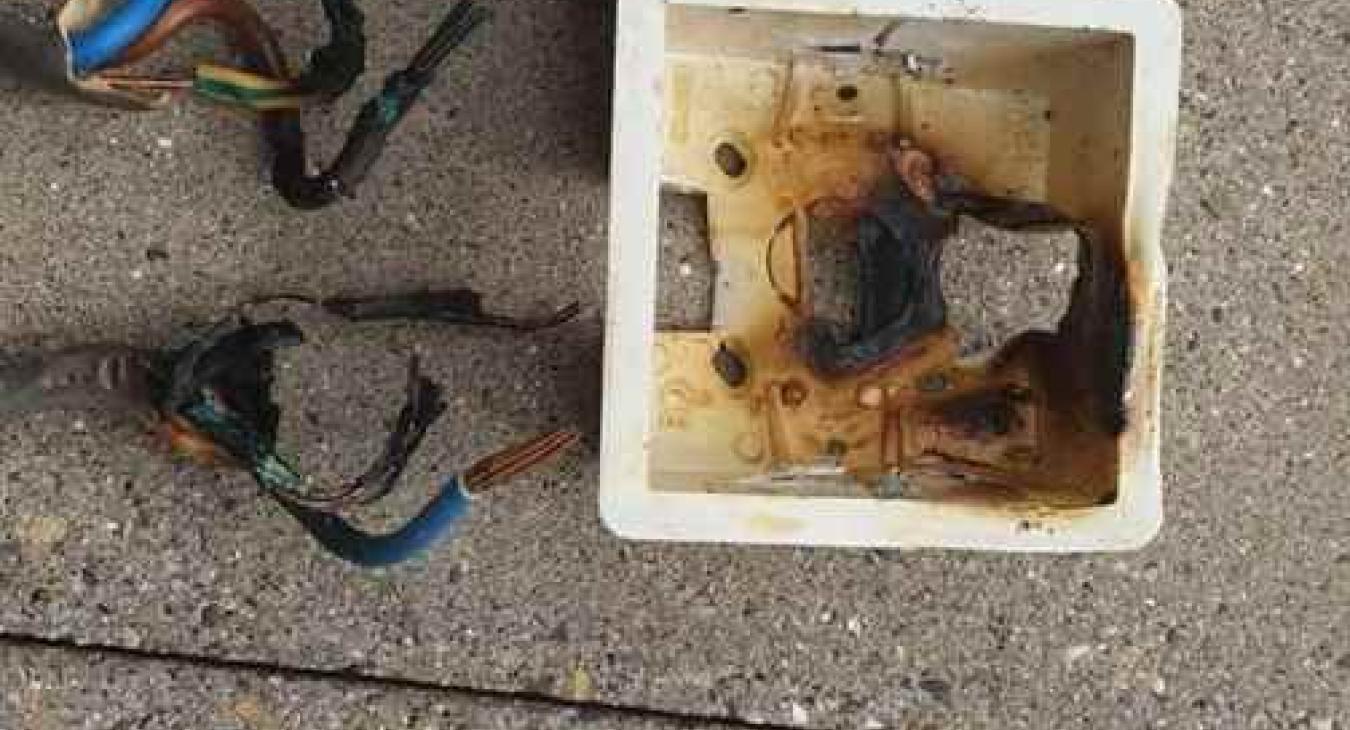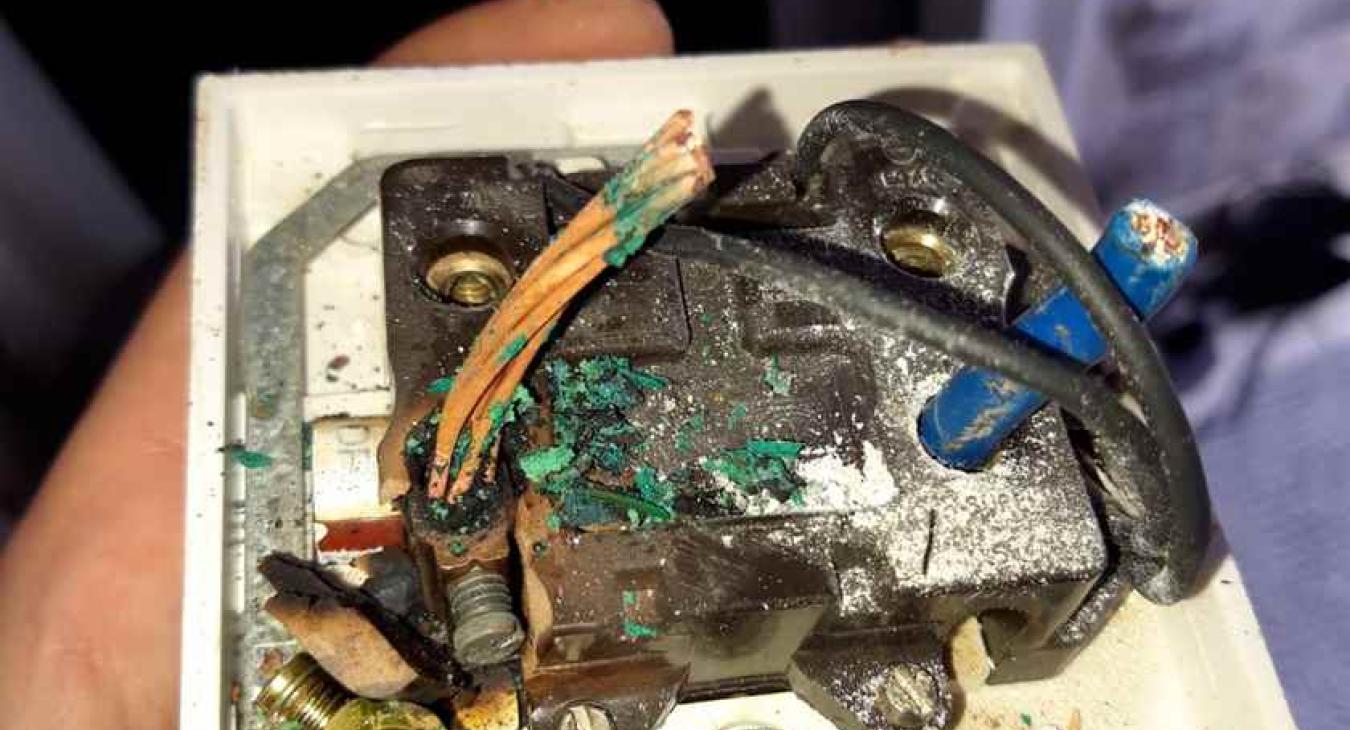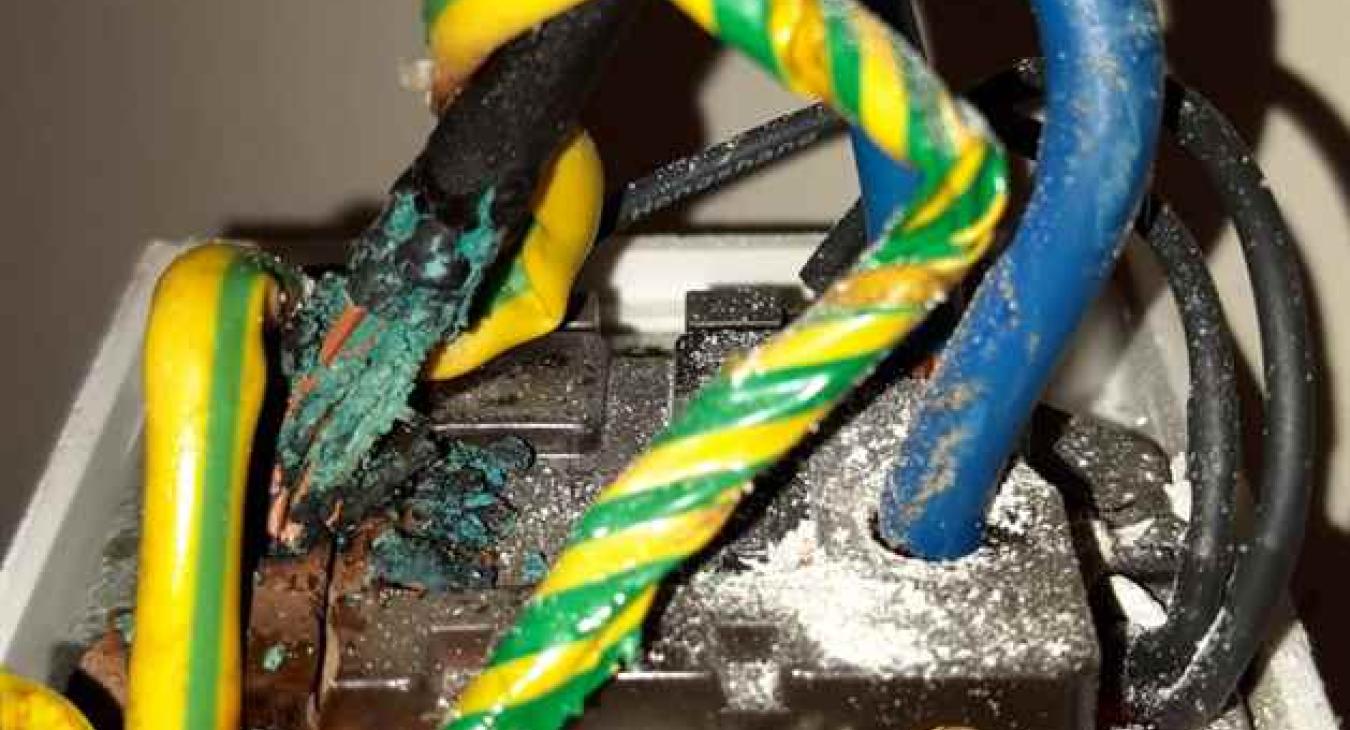What to do if your electric shower is generating a fishy smell
First of all, stop everything you are doing and go to your fusebox, and turn the shower off at the fuse box. Then come back here and find out what is happening, why, and what to do next.
Understanding the Fishy Smell in Your Electric Shower
If you have an electric shower, and you're experiencing a burning fishy smell when you're using it, the highly likelihood is: You have a loose connection in your shower isolator switch, and that is causing the plastic inside the switch to burn. Hence it is like exhibiting a strange burning plastic, fishy smell.
That is the likely cause. loose connections are very well known to create thermal effects (the technical term for things starting to burn), even in lightweight cables such as those for your lights, which are a fraction of the power consumption of an electric shower. And it is more likely to be inside the shower switch rather than in the electric shower itself, simply because it is easier to achieve solid bombproof connections inside the electric shower itself, as opposed to the connections inside the shower isolation switch.
Why does a fishy smell come from an electric shower?
Any loose connection can create thermal effects ie burning. The difference between the thermal effects on the back of a socket, compared to the back of a shower isolator switch, is largely due to the higher currents being sent through the poor connection, and the degree of heat that this generates. To start experiencing a plasticy fishy smell for electrical equipment generally indicates that this part of the electrical equipment really is quite badly burnt.
The amount of heat that can be generated by a bad connection on an electric shower circuit is enough to burn the electrical equipment enough is starts to give off that odd plastic burning fishy smell, and even enough to melt the plastic around, and weld the copper wires to the terminals.
Why does the fishy smell tend to come from the shower switch?
This is almost completely to do with how much harder it generally is to correctly install the wires inside a shower isolation switch as opposed to the wires inside the electric shower itself.
For electric showers, in general:
- Have plenty of room for dressing the wires and terminating the connections
- Electric showers are generally placed at chest height, and have good access around them
- The wires plug into the back of the shower enclosure, with the removal and fitting of the lid being completely unconnected to these cables
- Inside an electric shower you only have one set of (6mm+) wires to contend with
whereas electric shower switches usually have:
- Little room inside the enclosure for bending and dressing the wires in, and the sweet spot for cable length is a less forgiving tolerance
- Are generally placed in awkward to access locations such as on the ceiling where the operator has to work above their head, or in a cupboard with shelves, pipework, other cables, and even belongings inside, often at a right angle to the direction the operator's body is facing
- The wires plug into the front lid part, which can easily mean 1) if the wires are really nicely dressed, to put tension on the terminals when you push the front face back into the enclosure (often having to fight the lid to close)
- You have two sets of 6mm+ to deal with
These extra challenges are better explained in our "how to change a shower switch" article.
To summarise, it's usually much more challenging to correctly terminate wires inside an electric shower switch than inside the electric shower. The above points all culminate and point to this observation. And with that in mind,
Finding an electrician to solve your burning shower
You will be in the market for a well-rehearsed, highly experienced residential electrician who can help navigate you through this process. You will likely benefit from an electrician who is polite, professional, but doesn't beat it around the bush. Things that they might well come across: having chopped the bad bit of the electrical cables, they may need extending (or there's nothing useful left to extend) and you may need a fresh run. In a flat roof scenario, or if the wiring is under a boarded loft, this can become more challenging to solve. The thermal effects causing the fishy smell may well have appeared inside the electric shower itself, and the electric shower may need replacing (likely, if the thermal effects are that bad they started to cause a burning fishy smell!). In this case, they may need to provide you with a building notification certificate.
The electrician should more than likely have the following badges:
- NICEIC registration
- Public Liability £5M+ and professional indemnity insurance policies
- Registration with the ICO for processing your data
- Registration with the environmental agency as a licensed waste carrier
- A strong set of reviews on Google
And they should proudly want to show you these documents, like a badge of honour.
If you happen to reside in Medway & Maidstone and the surrounding areas in Kent, feel free to call us on 01622 277 321 to arrange a visit. We're always happy to help.
Want to find out more about our services, such as electric shower installation and bathroom electrics?
Want to see what else we get up to in Medway & Maidstone?

